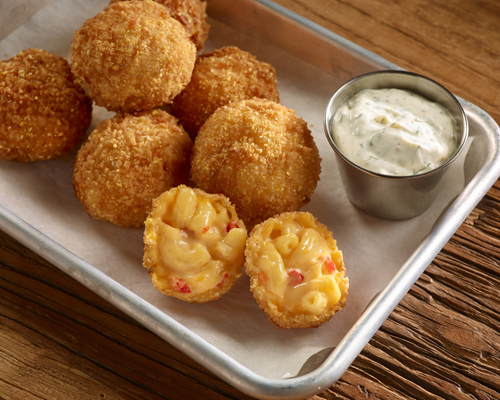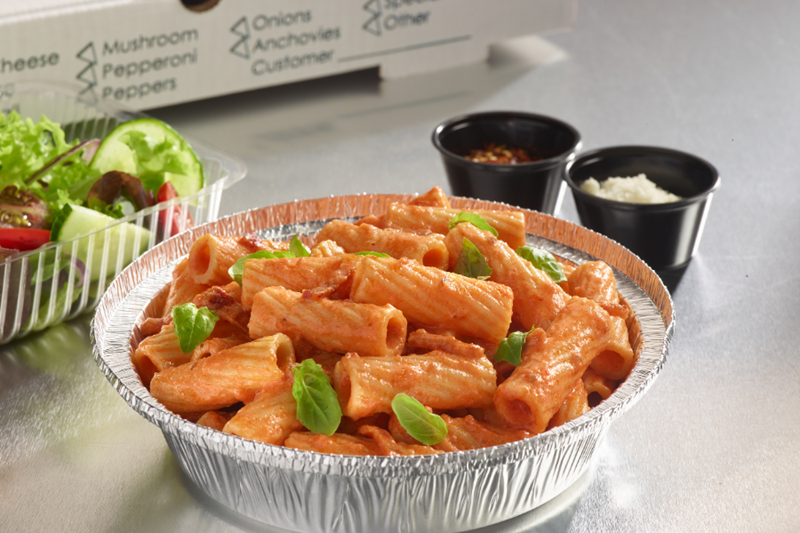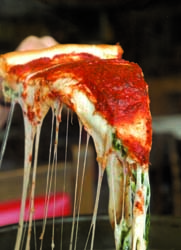 Reality: One out of every 10 of your pizza patrons may have trouble hearing. And those who speak English as a second language want clear communication.
Reality: One out of every 10 of your pizza patrons may have trouble hearing. And those who speak English as a second language want clear communication.
With consumers clutching their wallets tightly and burying their credit cards deep in their pockets, relationships between diners and pizzeria staff can make or break your business. Repeat pizza customers improve your bottom line, but those who must ask, “Repeat that, please?” may go elsewhere or retreat to the sad land of frozen home-baked pizzas. After all, it isn’t necessary to hear anything to select one at a grocery store.
Vince Mottola is co-owner of four Vince’s Italian Restaurant and Pizzeria stores and the son of Italian immigrants who started the Seattle-area business in 1957. A fi fth restaurant, their newest project, Pizzeria Pulcinella, just opened. The keys to operating a profitable, popular business for over half a century, says Mottola, are “food quality and consistency, followed closely by how the guests perceive your sincerity and enthusiasm to serve them.” Mottola knows how to please his hearingimpaired customers.
Retaining this diner isn’t diffi cult or expensive. The secret is communication. Vince’s service receives great ratings and reviews for good reason. Mottola makes employee training a priority, teaching staff his personal way of interacting with customers. He says, “I’m sensitive to body language with my guests … I pay complete attention to my guests and try to focus on my guests and not be distracted by things that are not a priority at the moment. I make eye contact with the guest when speaking.” People who can’t hear well use their eyes to substitute for their ears.
Licensed Audiologist Michele Hillard, M.A., CCC-A, of Eastside Audiology in Issaquah, Washington, says, “A big part of dining out is enjoying the atmosphere. You want to make your diners feel welcome.” Because you’ll rarely know if a person is hard-of-hearing, teach your staff that every time you talk to any customer: ? Face the customer when speaking, with your face in good light. Almost everyone who is hearing-impaired lip-reads some, without training. Never put anything in front of your mouth block your lips, you block communication.
If he can’t see your face, he can’t hear you. The lighting where pizza orders are taken is crucial. If dim light glows down from the ceiling behind a server, he can stand to the side so light falls on his face. Also, a candle might be placed on the table. If the light is directly above the table, or from a lantern on the table, the server can lean slightly forward, facing the patron as he takes the order. If orders are taken and picked up at central locations, brighten these spots.
? Get the customer’s attention before speaking don’t talk into a void. Perhaps wave an order pad or reposition something on the table until he looks at you. A diner who’s told you he’s hearing-impaired will not object to the light touch of a finger on his hand or shoulder: he’s used to this.
? Lower background noise. Mottola says, “Italian music is a very important part of the atmosphere. The music level needs to be comfortable so that the guests can enjoy the melody and the words, which is an important part of the Italian culture, but the music should not be so loud as to affect the conversation the guests have between themselves or with the staff.” Perhaps designate one “quiet corner”: disconnect music speakers, increase lighting, add soundproofing. Direct hearing-impaired customers to seats there.
? Don’t shout. Every hearing loss is unique, like fingerprints. Hearing aids boost hearing but don’t make it normal, as eyeglasses restore vision. Speaking louder can result in less comprehension, not more and disturbs nearby diners. Instead, enunciate clearly without exaggeration. If you speak rapidly, slow down. If one word fails after you’ve used it twice, try another.
? Jot down crucial words if you aren’t being understood. Often only one or two key words are “missing.” Show these to your puzzled diner and watch the relief when your conversation is back on track.
Use creativity with these ideas in your pizzeria. Mottola teaches his servers to observe body language: “If I think a guest has misunderstood me, I will quickly respond. I reposition my body … or ask if I have been understood. I am not afraid to do this, to be quick to respond to any possible confusion. Otherwise, they could be disappointed in their experience.”
These suggestions will help with all your pizzeria customers, including those for whom English is a second language. They’ll appreciate the extra attention. Audiologist Hillard says, “Don’t be shy … (try) any method of communication that seems to work. People are sometimes uncomfortable when faced with a new situation. Customers will pick up on (an) employee’s discomfort. They’ll feel uncomfortable if the server feels uncomfortable. The experience will be more enjoyable if the staff communicates clearly in a manner anyone can understand.”
Once at ease with hard-of-hearing patrons, you can become more assertive. Advertise in magazines, newsletters and on Web sites catering to the hearing-impaired and groups with a high percentage of those people. With permission, leave pizza flyers that state “we welcome the hearing-impaired” at places like senior centers. When you provide an exceptionally nice dining experience for these customers, referrals may start to arrive. Referrals lead to repeat referrals, which lead to more referrals …. Beginning to see the $$? ?
Hear This!
? 31 million Americans are hearingimpaired. 14.9 percent of children ages 6-19 have some hearing loss.
? Many people with hearing loss either deny it or keep it secret. If they have trouble understanding you Did he say ‘peppers,’ or ‘pepperoni’? they may never return to your pizzeria.
? Hearing Loss Association of America (www.hearingloss.org): local chapters meet monthly. Hearing-impaired learn coping skills and trade information including the best places to dine!
? English is not the first language for almost 20 percent of Americans. Visitors from abroad and non-native English speakers need unmistakable messages from pizza servers.
Joyce Lindsey O’Keefe is a freelance writer based in Bellevue, Washington.



